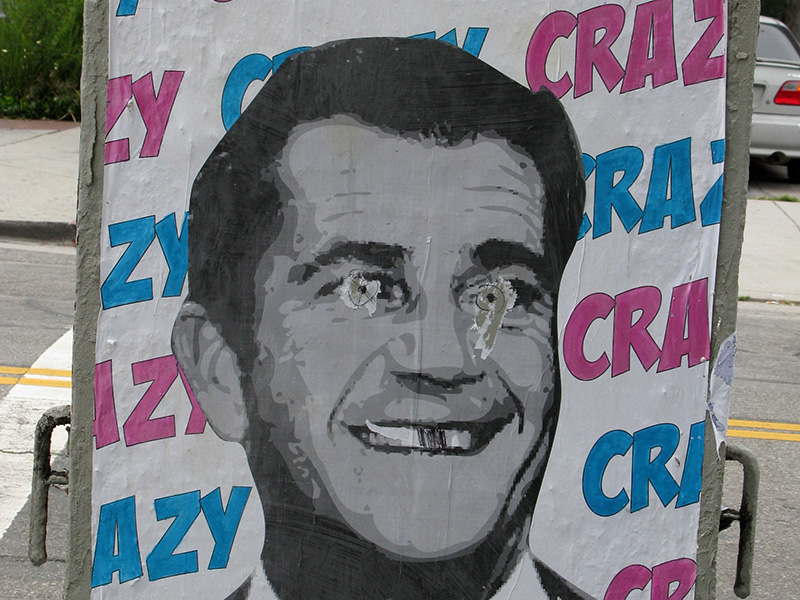Comparing political activist Ezra Levant to Hollywood actor/director Mel Gibson may seem odd, yet both men were accused of the same thing, and each handled his respective accusations quite differently.
Levant encountered several strange weeks of media attention (even for him) with his website, The Rebel.
One story stood out. Gavin McInnes, a U.S. political commentator who co-founded Vice Media, blew up the Internet during a trip to Israel with Levant and his Rebel colleagues. He posted a video on The Gavin McInnes Show (separate from Levant’s venture) that listed reasons why he’s “becoming anti-Semitic.”
He said he felt the need to defend “the super-far-right Nazis, just because I was sick of so much brainwashing” at Yad Vashem. He suggested Jews are “obsessed” with the Holocaust. He claimed that Holodomor was the brainchild of “Marxist, Stalinist, left-wing, commie, socialist Jews,” and the Treaty of Versailles was “disproportionately influenced by Jewish intellectuals.”
McInnes also uploaded a Rebel video entitled “10 Things I Hate About Jews.” The title was later sanitized (by Levant) to “10 Things I Hate About Israel,” but screenshots live forever.
The reaction was wild. “Alt-right” figure Richard Spencer and former Ku Klux Klan leader David Duke praised him as a fellow traveller.
McInnes was furious, and lashed out against them. He released a Rebel video, stating, “No offence, Nazis. I don’t want to hurt your feelings, but I don’t like you. I like Jews.”
Honestly, this was a faux controversy. McInnes’ critics, and short-term supporters, had clearly never seen his work before. He’s made edgy comments on TV, gone off on wild rants and tackled subjects that few would consider tiptoeing around. His remarks about Jews, Israel and the Holocaust were, therefore, part of his shtick.
READ: JEWS SINGLE-MOST TARGETED GROUP: TORONTO HATE CRIMES REPORT
It’s not my style, or likely yours, but it has an audience.
Levant obviously knew this. Why else would The Rebel’s Jewish founder defend McInnes as an “equal-opportunity offensive joke teller?” Levant’s not anti-Semitic, and it wouldn’t behoove him to hire anti-Semitic commentators.
Yet, instead of tackling McInnes’ controversial comments, Levant also blasted away at “liberal Jewish journalist activists,” like Jonathan Kay and Michael Coren, who labelled The Rebel and, by extension, Levant as anti-Semitic and/or anti-Israel.
He wasn’t impressed. As he put it, “Isn’t it weird that every single one of them is actually pretty anti-Israel, and about as Jewish in their personal lives as a ham sandwich?”
That’s one way to deal with an accusation of anti-Semitism. Here’s another.
A decade ago, his marriage falling apart, Mel Gibson drank heavily and spewed racist comments in public. The low point occurred in July 2006, after an arrest for drunk driving. He told Los Angeles County Sheriff’s Deputy James Mee, “F—–g Jews… The Jews are responsible for all the wars in the world. Are you a Jew?”
As it happened, he was.
Gibson was labelled an anti-Semite. His career spiralled. While he could have ignored his critics, he chose a different route. He entered a recovery program and met with Jewish leaders to “discern the appropriate path for healing.”
No one knew exactly what he meant at the time. We do now.
Zane Buzby, founder of the Survivor Mitzvah Project, told People magazine on March 17 that Gibson “has been an avid supporter of this organization for a few years now and doesn’t just write a cheque.” She said he’s helped Holocaust survivors in eight countries, went to the group’s office and “personally learned about the mission and the people helped,” and supported fundraising efforts “by getting others involved.”
The fact that Gibson has been doing this without fanfare speaks volumes about his road to recovery.
Obviously, Levant and Gibson are exceedingly different cases. The common thread is how they dealt with a particular issue – accusations of anti-Semitism – in the face of adversity.
Which strategy is correct? You decide.
